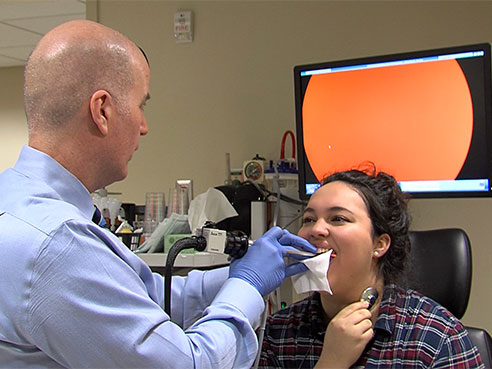 Forget texting with friends and emailing coworkers. The most important asset we have to engage in meaningful conversation is our voice. What other tool can explain, encourage or make a difference?
Forget texting with friends and emailing coworkers. The most important asset we have to engage in meaningful conversation is our voice. What other tool can explain, encourage or make a difference?
But like any part of our bodies, our voices need to be looked after. World Voice Day is an annual worldwide event devoted to the celebration of that invaluable tool.
Each of us has a unique vocal signature comparable to a fingerprint. The voice includes defining characteristics of pitch, loudness, resonance and clarity, all of which lead to presumptions about our intelligence, mood, influence, confidence and desires. The unique variation of these characteristics is distinctly recognizable, closely associated with our identity and therefore should be something that we cherish when navigating the many thousands of choices that we make daily.
Richard McHugh, M.D., assistant professor for the University of Alabama at Birmingham Department of Otolaryngology and co-director for the UAB Voice Center suggests making your vocal hygiene a priority by implementing these healthy lifestyle choices:
- Drink an adequate volume of water each day
- Avoid overuse and abuse (yelling, strain, chronic throat clearing, speaking in glottic fry)
- Quit smoking, avoid smokeless tobacco and exposure to secondhand smoke
- Limit intake of acid reflux-inducing foods and activities
“One of the most common problems that people experience is called muscle tension dysphonia,” said McHugh. “This occurs when the act of speaking with muscle over usage and strain leads to hoarseness. It can be a result of many different things including voice overuse or abuse, or from laryngitis among many other causes.”
If you feel that your voice is having problems such as roughness, strain, hoarseness or weakness lasting more than a few weeks, make an appointment with your otolaryngologist or laryngologist for an evaluation.
A laryngologist may be needed for treatment of problems that require surgery. These specialists are also able to diagnose uncommon voice disorders. Another part of your patient care team may include a speed pathologist who works to teach the healthiest technique to produce voice by optimizing breath support and minimizing laryngeal muscle strain through rehabilitative exercises and techniques.
“We are so privileged to be a part of caring for patients with voice trouble, said Bridget Hopewell, M.D., Assistant Professor of Otolaryngology at UAB. “There are so many people who rely on their voices for their careers in addition to facilitating relationships with other people. Our goal is to help keep voices healthy so patients can continue speaking, teaching, preaching, or singing!”
For more information, visit www.uab.edu/medicine/otolaryngology.